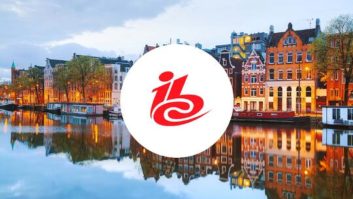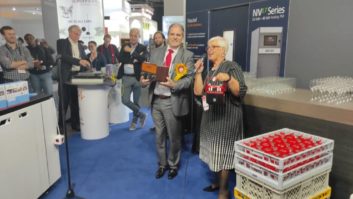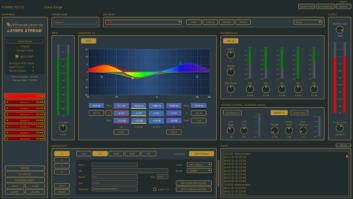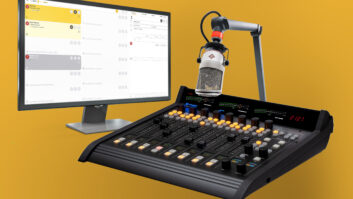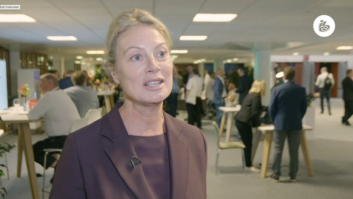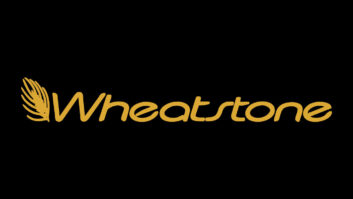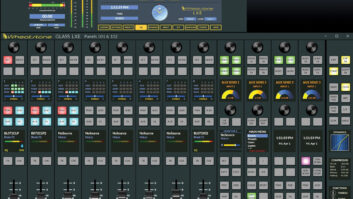The IBC show in Amsterdam is approaching. Between now and then Radio World will conduct several short Q&As with manufacturers about their plans and offerings, to help you get the most out of the big international trade show. Brad Harrison is director of Asia, Africa and Middle East sales for Wheatstone.

Radio World: How has business been for the company since last year’s IBC Show?
Brad Harrison: We’ve had a very strong year since the last IBC show, and in fact, we purchased a company (PR&E) and added on a furniture line, not to mention developed new processing and consoles.
RW: What are you hearing from your customers about their business outlook this year? In what areas should we expect growth or the most interesting projects?
Harrison: Broadcast facilities are being scaled down in size and it’s now all about maximizing existing space and resources. For television production especially, that means moving mixing and audio around using IP instead of transporting crews and equipment around to various venues. I think today’s broadcasters are much more astute and educated about what technology can do for them in terms of return on investment. What we hear over and over from our customers is that they’re under pressure to put out more content in more interesting ways, but they’ve got to keep an eye on the budget at the same time.
RW: How are your European and other international operations and efforts faring?
Harrison: There’s an almost universal need by broadcasters everywhere to be faster, better and more efficient in how they deliver content. At the center of that is the broadcast operation itself, and although different parts of the world are in varying stages of making that transition, almost without exception they’re all looking to IP to solve these challenges. Because Wheatstone started out with a strong U.S. presence, European and operators elsewhere are getting the benefit of that experience. Although certain regions have particular ways of doing things and there are some nuances, we are finding that broadcasters everywhere are trying to solve the same problems: How can they produce content that’s better, quicker and still keep costs in line.
RW: Is the IBC Show a good investment?
Harrison: We’ve been going to the IBC for many years. I’d rate it up there as one of the top five shows we do, because it is a long-established show and there’s really nothing that compares with it for getting that one-on-one time with broadcasters in the region.
RW: What new goodies will your company be showing? Why should attendees visit your booth? (Stand 8.C91)
Harrison: As you might know, Wheatstone purchased the assets of PR&E earlier this year and introduced a new IP audio networked PR&E console that is aimed at the one- or two-studio facility. Of course, we’ll also be showing our large format TV audio consoles and our new LXE console, which is an entirely reconfigurable console, right down to the individual buttons and knobs on the control surface. And, of course, we’ll be showing more applications and uses for IP audio networking in general, such as live remote production using virtualized audio services across a long-haul link — in particular for TV. We’ll be demonstrating our new approach to audio processing for FMs.
RW: Are there any products that sell better in Europe than the U.S.?
Harrison: There are a few style differences between the two — for example, European operators tend to prefer the board split into two or more fader banks, and we have a great networked solution for that (LXE). The good thing about IP audio consoles is that they’re extremely flexible.
RW: Wheatstone has been active in the equipment market (AoIP, broadcast, audio processing) for years. What’s the biggest problem or challenge facing buyers these days?
Harrison: The big challenge is, simply, adding on more content and ways for their listeners to view or listen to that content without adding more cost to their operation. That’s the bottom line.
RW: What do you anticipate will be the most significant technology trend at the 2017 IBC Show?
Harrison: IP, for sure, and all that comes with it, including standardization, new workflows, and ultimately more and better content.
RW: You’re a show veteran, what’s your favorite thing about the IBC show?
Harrison: Being in Amsterdam, it’s quite convenient for many attendees; not just from Europe, but also Africa and the Middle East. We see many customers at IBC who do not attend NAB. Also, the RAI is a great venue, and Amsterdam itself is a wonderful city with lots of great restaurants for after show hours.
RW: Social media is the new marketing frontier these days. Is it affecting the way your company does marketing/business?
Harrison: Absolutely. We have a substantial social media presence, and that serves as a way to better understand what broadcasters are looking for or are experiencing.





